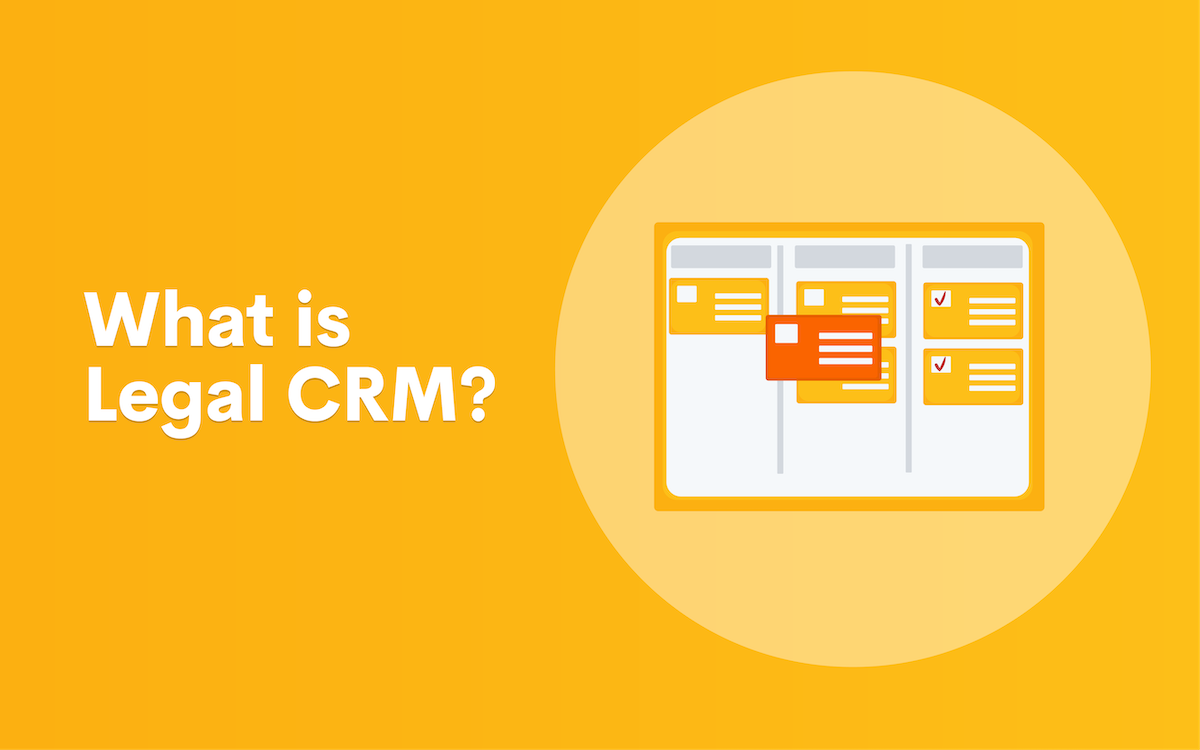CRM (customer relationship management) platforms are designed for businesses to organize, track, and analyze data related to their customers. Most CRM platforms are designed to be used by businesses in a range of verticals. As with any ‘one-size-fits-all’ solution, these platforms may lack features you need and include confusing extras you don’t. So, what kind of software do lawyers use? What is a legal CRM? If you’re looking for help with law firm automation, here are the tools you’ll find at different levels of CRM.
Legal CRM tool for prospect & client communication
A legal CRM helps you manage all your client communications from one central location. Capture and store client contact information, including phone numbers, addresses, and personal details that may be relevant to your work. As a matter progresses through your intake process, reach out to clients through email or SMS to provide updates or request action. This can be particularly helpful if your client has to fill out a lot of forms or submit documents. With law firm automation, your firm can build intake pipelines that handle some communications for you. For example, a lead may automatically receive a confirmation email after booking an appointment on your website. These inputs create a CRM database of contacts, making it the starting point of law firm client management.
Legal CRM tool for internal & external collaboration
Legal CRM tools can improve collaboration between clients, attorneys, and law firm staff. A legal CRM with a client portal provides an easily accessible space to share documents, deadlines, messages, and tasks. The CRM may also include an internal-facing task feature to facilitate the behind-the-scenes process. For example, you can create reminders for your law firm’s intake staff to follow-up with a prospect to ask clarifying questions about their matter. By running communications and collaboration through one platform, law firm automation can create a seamless transition from intake to case management for both clients and staff.
Legal CRM tool for billing & invoicing
Time is a law firm’s most precious commodity. The best CRM for law firms saves time while enabling firms to understand where they spend time. Simple time tracking features ensure you always accurately bill clients. Billing and invoicing features generate and send to clients easily digestible invoices, including options to charge rates or flat fees and itemize any expenses. A robust legal CRM utilizes the data captured from these features to create detailed reports about staff hours, and statistics about time spent on different types of cases.
Legal CRM tool for marketing
The intake process starts before a potential new client contacts your law firm. In fact, it really starts when that lead first identifies your firm as an option to handle their legal matter. That’s why a comprehensive legal CRM contains features to help with law firm marketing. A legal CRM tracks digital ad campaigns through UTM codes so you can monitor the messages and media that generate the most business for your firm. It also allows you to tailor your marketing efforts for different practice areas or geographic locations by segmenting your contacts into distinct audiences. A legal CRM can include features of analytical CRM, like reports and visualizations that form the basis of new marketing strategy.
All of the above legal CRM tools are focused on facilitating the client intake process. Depending on the software, some legal CRM platforms may have even more expansive features that overlap with, say, case management or client management platforms. Here are some of the things you might find in CRM and other legal software:
Client management
A legal CRM captures data important to client management, like client information, case history, and communication history. As a matter progresses, you may transition from a legal CRM to a law firm client management platform. It’s important that transition is simple and efficient, but the information also needs to be accurate and complete. One simple mistake of human error could derail an otherwise straightforward intake process.
Document management
A legal CRM’s document tools are focused on the documents necessary for a client to retain a firm. For example, you can save templates of engagement agreements for different case areas. Custom fields will then complete the template with information relevant to a given matter. A client portal allows for clients to share documents with their attorneys, but a legal CRM is primarily concerned with documents a firm shares with its leads and prospects.
Why do law firms need CRM?
If a legal CRM is just one component of your law firm’s tech stack, integrations between platforms can automate a seamless transition from one stage to the next. Ultimately, the best CRM for law firms should create a great client experience. No matter the outcome of a case, you can always control how you communicate and collaborate with clients, how you spend your time, and how you market your firm to potential new clients.
It’s one thing to see these features in a list. It’s another thing to see them in action, understanding how they work in concert to create a client experience. If you want to see the most comprehensive attorney-client customer relationship management platform on the market, schedule a demo of Lawmatics today.


